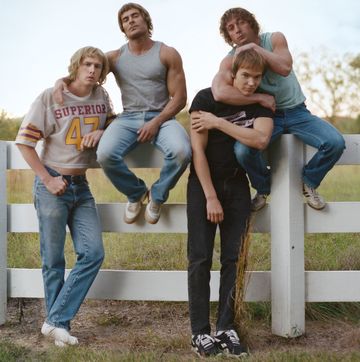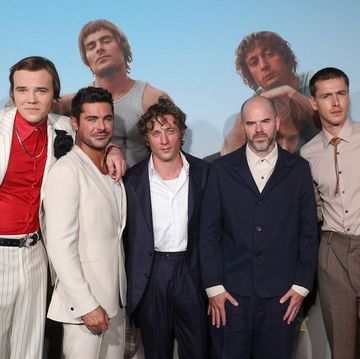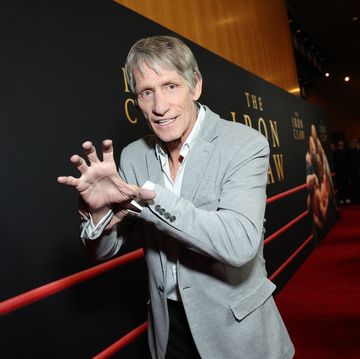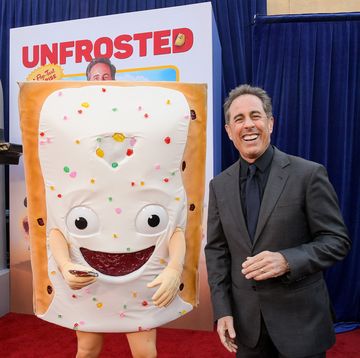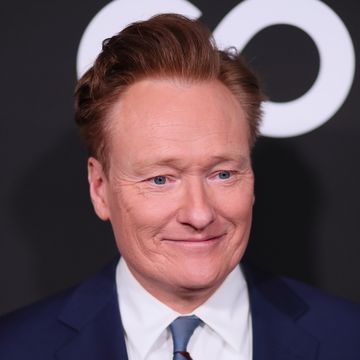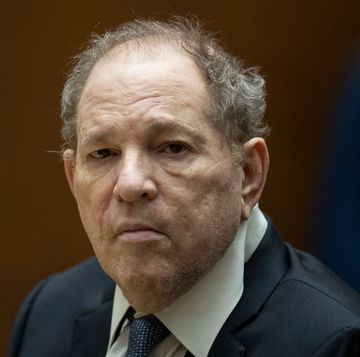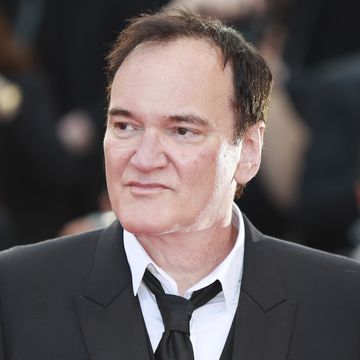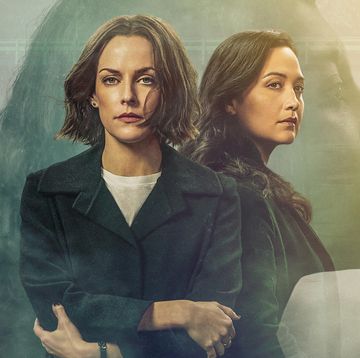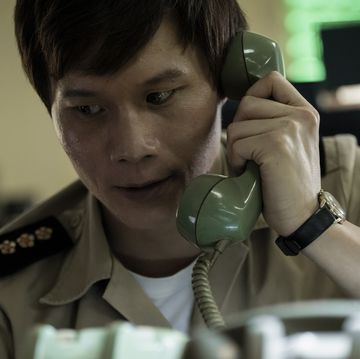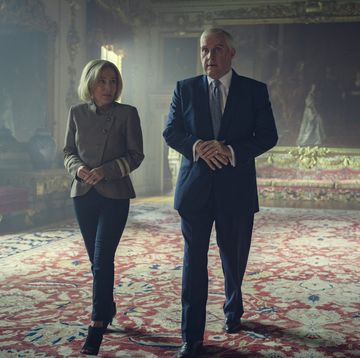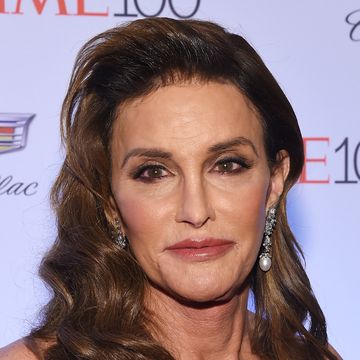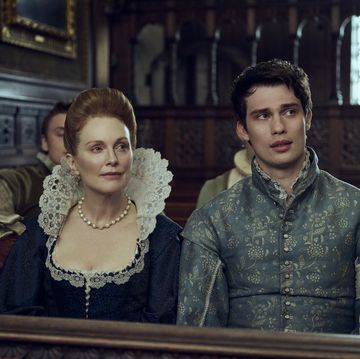(1961-)
Who Is Alfonso Cuarón?
Born in Mexico City in 1961, Alfonso Cuarón learned the ropes in Mexico's TV and film industry after being expelled from film school. His first full-length film, Sólo con tu pareja (1991), led to opportunities to direct Hollywood features, though it was a return to his Spanish-language roots with Y tu mamá también (2001) that brought him international fame. Cuarón went on to helm Harry Potter and the Prisoner of Azkaban (2004) and Children of Men (2006), before earning best director Oscars for the space epic Gravity (2013) and the autobiographical Roma (2018).
Childhood
Alfonso Cuarón Orozco was born on November 28, 1961, in Mexico City, Mexico. One of four children born to Alfredo Cuarón, a doctor, and Cristina Orozco, a pharmaceutical biochemist, Cuarón was also especially close to his nanny, Liboria Rodríguez, and enjoyed a comfortable middle-class upbringing until his parents separated in the early 1970s.
By age 12, Cuarón had already zeroed in on his career path with the movie camera he lugged everywhere. "He was a huge pain in the ass, shooting everything," his younger brother and collaborator, Carlos, recalled to Vulture. "My sister and I became his prop, his stunt, whatever. It was unbearable. He would repeat that he was going to be a film director again and again."
Cuarón's passion brought him to the Centro Universitario de Estudios Cinematográficos to study film, alongside another future collaborator in Emmanuel "Chivo" Lubezki. However, their rebellious attitude rankled instructors, and both were kicked out before completing their studies.
Early Career
Following a stint at the National Museum of Art, Cuarón threw himself into the trenches of the Mexican film and TV industry, taking on every gig that offered an opportunity to hone his technical skills. "I tried to connect with whoever knew a bit more than me, as an assistant or whatever, editing an infomercial, anything," he told the Director's Guild of America.
By the late 1980s, Cuarón had forged a reputation as a reliable assistant director for foreign productions filming in Mexico. He also found steady work with a sci-fi/horror anthology series called "La hora marcada," which offered promising young talents like Cuarón, Lubezki and Guillermo del Toro the chance to write, shoot and direct several episodes.
Films and TV Shows
'Sólo con tu pareja,' 'Fallen Angels'
Following a decade of hands-on instruction, Cuarón roped in his brother Carlos to co-write and Lubezki to shoot what became his first feature film, Sólo con tu pareja. Cuarón feuded with the backers of his state-funded project, the frayed relations contributing to a delayed domestic release. Nevertheless, the comedy, about a womanizer who gets tricked into thinking he contracted AIDS, earned a valuable showcase with its entry to the 1991 Toronto Film Festival.
Sólo con tu pareja caught the attention of powerful director and producer Sydney Pollock, who lobbied for Cuarón's place among the talents tapped to helm episodes of Showtime's neo-noir series "Fallen Angels." Feeling out of his depth–other "Fallen Angels" directors included heavyweights Tom Hanks, Tom Cruise and Steven Soderbergh–Cuarón got off to a disastrous start, until he received a pep talk from star Alan Rickman. The new kid on the block quickly rallied, and his September 1993 episode, "Murder, Obliquely," won a CableACE Award for directing.
'A Little Princess,' 'Great Expectations'
Still a relatively unknown commodity in Hollywood when the script for A Little Princess (1995) came his way, Cuarón convinced producer Mark Johnson that he was the right man to oversee the adaptation of Frances Hodgson Burnett's 1905 novel and made the risky move of pulling out of another project he'd agreed to direct. The gambit paid off for everyone involved, as Cuarón proved adept at managing the cast of child actors en route to earning positive reviews for the 1995 film.
The success landed the rising director a shot at his biggest and grandest Hollywood feature to date, an adaptation of Charles Dickens' Great Expectations. However, despite the presence of stars Ethan Hawke, Gwyneth Paltrow and Robert DeNiro, and the beautiful shots rendered by his trusted cinematographer, Lubezki, Great Expectations (1998) earned mixed reviews and struggled at the box office. Cuarón later admitted that he'd accepted the job despite his apprehension over the script, resulting in a "complete failed film."
'Y tu mamá también'
Going back to basics, Cuarón called on Carlos to revive one of their earlier ideas and enlisted Lubezki to "do the film we would have done before going to film school." The result was Y tu mamá también, a coming-of-age feature about two teenagers who take a road trip with an older woman across the Mexican outback. Shot with handheld cameras that gave it a documentary feel, Y tu mamá también mesmerized audiences with its steamy sex scenes and honest portrayal of adolescent longings and class inequalities. The film wound up earning the Cuarón brothers an Academy Award nomination for best original screenplay.
'Harry Potter and the Prisoner of Azkaban'
Heeding the profanity-laced advice of his friend del Toro, Cuarón took another shot at big-budget fare by agreeing to helm Harry Potter and the Prisoner of Azkaban. Following behind the popularity of the first two installments, Cuarón sought to put his stamp on the Potterverse by giving it a slightly darker feel and dressing his young lead actors "in jeans and hoodies to ground the story, and make them look the way kids look." While Prisoner of Azkaban grossed slightly less than its predecessors, the well-reviewed film was lauded for helping the franchise transition to the more mature elements that surfaced as Harry, Hermione and the gang blossomed into teenagers.
'Children of Men'
The success of Prisoner of Azkaban gave Cuarón the freedom to make the film he'd been thinking about since the 9/11 terror attacks, an adaptation of P.D. James' 1992 sci-fi novel The Children of Men. Set in a not-too distant dystopian future, when humans are infertile and a refugee crisis has turned the United Kingdom into a police state, The Children of Men (2006) showcases the trademark long-tracking sequences Cuarón and Lubezki began developing with Y tu mamá también. While the stunning visual imagery and strong performances from stars Clive Owen and Julianne Moore weren't enough to draw audiences to theaters, the film earned three Academy Award nominations.
'Gravity'
This time teaming with his older son, Jonás, Cuarón co-wrote what he thought would be a simple film about an astronaut set adrift in space, only to face the challenges of accurately depicting a microgravity environment. The solution was to shoot what became Gravity (2013) with carefully programmed robot cameras, along with creating a nine-foot cube, lined with 1.8 million individually controllable LED bulbs, to capture the movements of star Sandra Bullock. Incredibly, the production all came together after four and a half years, a triumph that made Cuarón the first Latino to win the Oscar for best director.
'Roma'
Turning the page from the daunting obstacles of Gravity, Cuarón took on a different challenge by returning to Mexico City for production of the autobiographical Roma (2018). Written and shot solely by Cuarón (Lubezki had to attend to a family matter), Roma recreated both the private and public moments of Cuarón's childhood told from the point of view of the family's nanny. Although the cast was largely populated with non-actors, Cuarón's painstaking attention to detail and emotionally charged story proved a hit with critics, leading to Academy Award wins in the categories of best director, cinematography and foreign language film.
Production Company and Producer
Cuarón founded the production company Esperanto Filmoj in 2004. Its name is drawn from the "universal language" of Esperanto invented by Polish oculist Ludovic Zamenhof in the late 19th century.
Esperanto Filmoj has produced such films as del Toro's Pan's Labyrinth (2006), Carlos Cuarón's Rudo y Cursi (2008) and Jonás Cuarón's Desierto (2015), along with the sci-fi TV series "Believe" (2014). Cuarón also served as executive producer of the Marathi-language film The Disciple (2020) after meeting its director, Chaitanya Tamhane, through the Rolex Mentor & Protégé Arts Initiative.
Marriages and Children
Cuarón was married to Mexican actress Mariana Elizondo from 1980 to 1993, during which time he fathered Jonás. He then was married to Italian actress and journalist Annalisa Bugliani from 2001 to 2008, their union producing daughter Tess Bu Cuarón (b. 2003) and son Olmo Teodoro Cuarón (b. 2005).
QUICK FACTS
- Name: Alfonso Cuarón
- Birth Year: 1961
- Birth date: November 28, 1961
- Birth City: Mexico City
- Birth Country: Mexico
- Best Known For: Mexican director Alfonso Cuarón is the mind behind award-winning films including 'Y tu mamá también,' 'Gravity' and 'Roma.'
- Industries
- Film
- Astrological Sign: Sagittarius
- Interesting Facts
- Cuarón is the first Latino to win the best director academy award for his work on 'Gravity.'
- Occupations
- Filmmaker
Fact Check
We strive for accuracy and fairness.If you see something that doesn't look right,contact us!
CITATION INFORMATION
- Article Title: Alfonso Cuarón Biography
- Author: Biography.com Editors
- Website Name: The Biography.com website
- Url: https://www.biography.com/movies-tv/alfonso-cuarón-orozco
- Access Date:
- Publisher: A&E; Television Networks
- Last Updated: July 18, 2022
- Original Published Date: July 18, 2022
QUOTES
- There is no time for caution; there is only time for transformation.
- You soon learn, no matter what the film is, that it's all about breakdown. You break it down, and then break it down again, and something that looks so overwhelming at first becomes simple.
- How do you eat an elephant? One spoonful a day.

